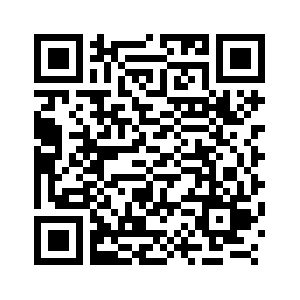by Burak Akinci
ANKARA, July 23 (Xinhua) -- Türkiye, a long-standing member of NATO, has made overtures towards other global partnerships beyond the West, a strategic diversification move that is in line with its national interests, experts said.
Turkish President Recep Tayyip Erdogan said last week that "establishing new equations in foreign policy" is not a choice but a "necessity" for Türkiye, the semi-official Anadolu Agency reported.
Speaking to reporters after last week's cabinet meeting in the capital city Ankara, he said his country "cannot be squeezed into a single bloc ... We neither turn our back on the East for the West nor neglect the West for the East."
The Turkish leader's remarks come in the wake of Türkiye's interest in joining BRICS and the Shanghai Cooperation Organization (SCO).
Ankara's balancing act is not new as it had in the past courted these two international organizations within its efforts to diversify strategic and economic partnerships beyond the West and the North Atlantic Treaty Organization, experts said.
"Türkiye's strategic foreign policy will be to maintain a balance without favoring either side to reap benefits in trade and economy," Ali Oguz Dirioz, an associate professor of international relations at Ankara's TOBB University, told Xinhua.
Some would say that this will not be done without leaning one side or the other" he added, after all, Türkiye occupies a critical geostrategic location between East and West and is an energy hub for Europe.
Ankara's keen interest in diversifying its partnerships has raised concerns in the West, but "the fact that Türkiye is part of European institutions doesn't prevent it from enhancing its political and economic relations with Asian nations," Dirioz argued.
"One does not preclude the other. There is a misguided narrative insisting that Türkiye's alignment is changing, but I disagree," he added.
He said Türkiye's engagement with other organizations complements its strong existing relationships with Western institutions, and it is in its best interests to do so. Türkiye can serve as a bridge builder, Dirioz argued.
A Turkish diplomatic source told Xinhua on the condition of anonymity that "Turkish foreign policy focuses on preserving its political and economic interest while enhancing strong ties with countries on energy and trade routes in a multipolar system."
This strategy also encompasses "mediating regional conflicts", such as the Russia-Ukraine crisis, to boost its international standing, the source noted.
Since last year, Türkiye has participated in high-level meetings of the G7, BRICS, the SCO and NATO, where President Erdogan also held bilateral meetings with leaders.
After several years of tensions, Türkiye has re-engaged with the West, approving Sweden's NATO membership and initiating a rapprochement with Greece this year.
For Soner Cagaptay, director of the Turkish Research Program at The Washington Institute, there are several reasons why Türkiye wants to look for new partners beyond the West.
"Türkiye embraces its role as a middle power in a world that is no longer bipolar," he told Xinhua.
He said that since the failed military coup in 2016 in particular, the Turkish establishment has been frustrated by the U.S. stance on various issues. Such disappointment, together with "the impasse in negotiations talks with the European Union among others," pushed Türkiye for other alternatives.
Cagaptay noted that Türkiye, boasting a large military in NATO, is also seeking new opportunities as it is witnessing economic difficulties at home.
"As a resourceful country, Türkiye knows that it needs financial assistance to grow again and is courting different countries," he said.
In his view, Türkiye is compartmentalizing its relations with Western and other partners, agreeing and disagreeing on issues. ■



